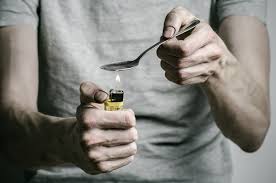Addressing heroin overdose and drug abuse complications

Addressing heroin overdose and drug abuse complications. Heroin long term effects on the body organs. The drug abuse development into addiction complications often begins little by little and grows in to serious health complication.
Addressing heroin overdose and drug abuse complications: Why do people Abuse Drugs
In one of the drug addiction forum, doctor Dalal Akoury MD and founder of AWAREmed Health and Wellness Resource Center while addressing heroin overdose indicated that quitting heroin is no problem, the real problem is staying off the addiction. This is true because a serious heroin user who misses a dose or two suffers the painful withdrawal symptoms. Worse than the physical symptoms are the debilitating depression and the knowledge that just one dose would make all the pains go away. In a few days, withdrawal ends but the cravings do not. Long-term heroin use causes users to hunger for heroin just in the same way we often hunger for food. Most users today have been through treatment multiple times, and only five to fifteen percent stay off for good. It is not a question of low self-control, cravings never ends, it may not show for a while but when triggered, it may not matter how long you have been off the drugs you are still able to relapse.
The society is not helping either. We often feel adamant in accepting the rehabilitated addicts or those who have served their jail terms. Take for example many organizations are not willing to absorb former convicts in job positions. Actually very few if will hire someone with a criminal record, especially for heroin. Just when users need help rebuilding a stable life, their criminal records cripple their job applications and bar them from college loans, assistance programs and professional licenses.
Addressing heroin overdose and drug abuse complications: The users trying to quit for good run the greatest risk of overdose.
Regular heroin users know how much of the drug their bodies can take. They increase their habit slowly, building up a high opiate tolerance. But when they quit, their bodies rapidly lose this tolerance. If they stay clean for a few weeks and then inject their usual dose, the dose may be fatal. If you followed the story of the young boy who only after two weeks of freedom from jail term, borrowing his friend’s car, his tolerance dropped enough that the usual dose killed him.
Others die from taking heroin with cocaine and alcohol, or from bad batches that the dealer mixed poorly or blended with toxic substances. Bad batches are par for the course, since the dealer’s only qualification as a pharmacist is his willingness to risk his life and the lives of others. But the most common reason for overdose is relapse use. In fact, studies show that people who die of heroin overdose actually have on average lower levels of heroin in their bodies than living users. This means that it is the people trying hardest to quit who are at the greatest risk of dying.
Addressing heroin overdose and drug abuse complications: We could stop people from dying of overdose, except we can’t find them.
Many are surprised to learn that heroin overdose deaths are entirely preventable. Naloxone which is administered by injection or nasal spray reverses overdose within seconds by dislodging the drug from the brain’s opiate receptor sites. Naloxone is available in hospitals and is often carried by paramedics and some police officers. In a small number of cities, community-based overdose programs train users, family and friends to administer naloxone. All this in an attempt of addressing heroin overdose and drug abuse complications. You can also seek for more clarity from doctor Dalal Akoury at your convenience.
Addressing heroin overdose and drug abuse complications









